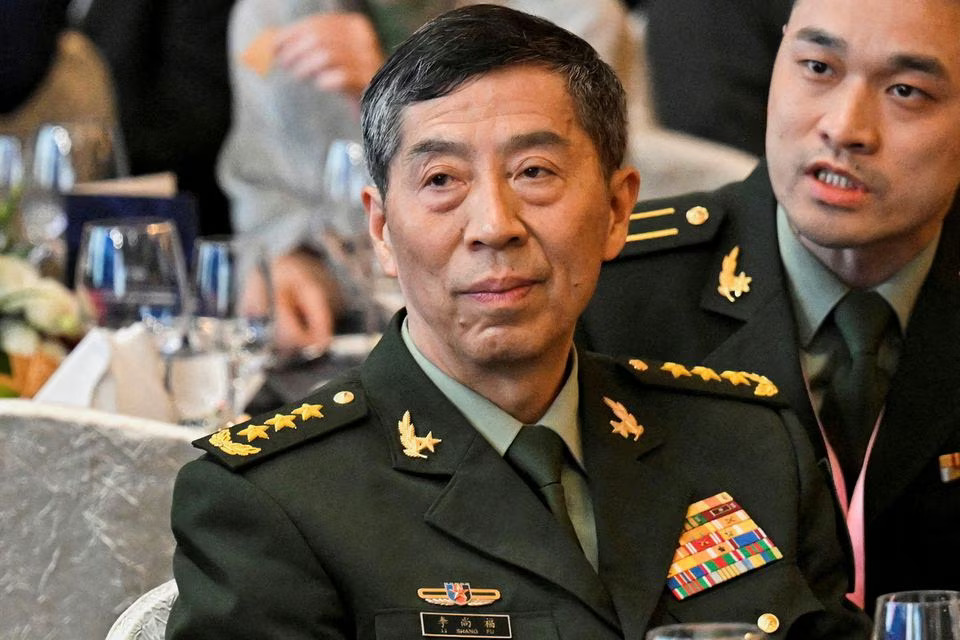Chinese politics recently made headlines when the unexplained disappearance of Defence Minister Gen. Li Shangfu was reported widely in the regional and global media. Appointed in March 2023, Gen Li has become the second senior official to abruptly disappear this year without a transparent explanation. This event, coupled with the removal of former Foreign Minister Qin Gang, has sparked intense speculation and conjecture about the inner fault lines of Chinese politics under President Xi Jinping’s rule.
The abrupt and unexplained vanishing of Gen. Li has raised significant questions about the stability and resilience of Xi’s power circle. Gen Li, who hasn’t been seen since his last public appearance delivering a speech on August 29, joins the ranks of senior officials in China who have vanished from public view without clear reasons reflecting signs of all is not well within the Chinese Communist Party (CCP). Such disappearances have previously been attributed to a purge or involvement in the corruption scandals.
Gen. Li’s case is not unusual. Before him, the mysterious departure of former Foreign Minister Qin Gang in July 2023 without an official explanation had fuelled speculations about the supposed fragile dynamics within the CCP. Their sudden exits have not brought a substantive shift in Chinese foreign or defence policies as the ultimate power resides with Xi. Nevertheless, these departures raise questions about Xi’s leadership and more importantly its longevity. The veil of uncertainty surrounding the fates of these officials underlines the cryptic and often severe dynamics within China’s political landscape. In a system dominated by Xi’s influence and with no clear successor in sight, power struggles among the elite to garner favour from the paramount leader intensify, potentially leading to sudden and drastic personnel changes.
Xi is renowned for his emphasis on loyalty within the CCP. He has used the aggressive campaign against corruption to not only maintain his political supremacy but also to weed out potential political adversaries. This, in a sense reflects his insecurity about the efficacy of his leadership. The lack of transparency in China’s political system, characterised by its one-party authoritarian rule, has caused widespread speculation and theories regarding the potential reasons for the departure of these high-ranking officials. These conjectures range from accusations of corruption to personal feuds or internal power struggles reflecting wobbly political scenario in China. Furthermore, the unusual and rapid ascent of officials like Qin Gang and Gen. Li, only to be swiftly removed from their positions, suggests a level of unpredictability in the political climate, hinting at power struggles and perhaps a reconfiguration of alliances and loyalties within the Party.
General Li’s involvement with the American sanctions due to his oversight of weapon acquisitions from Russia adds a layer of complexity to his disappearance. The subsequent suspension of military contacts with the United States by China, in protest against American arms sales to Taiwan, and China’s insistence that US sanctions against Li be lifted, illustrate the complexities and tensions defining the Sino-American relations.
While Xi’s control over power remains formidable, the recent disappearance of key figures within the political and military spheres underscores the intense complexities and uncertainties surrounding the consolidation of power under a singular authoritative figure. The strengthening of the party’s guidance over state policy functions and the manifestation of what could be perceived as ‘court politics’ underscore the heightened competition for influence within Xi’s regime.
This internal turmoil could have far-reaching implications for China’s foreign policy. They are coming amidst China’s ailing economic conditions, its escalating confrontation with the United States, particularly regarding trade, technology, and Taiwan and the headwinds against the Belt and Road Initiative. These have only added to Xi’s paranoia, potentially leading to inconsistencies and fluctuations in diplomatic approaches, as Xi seeks to solidify China’s position as a global superpower.
As the world continues to observe these developments, China’s political climate and its foreign policy under the Xi regime appear to be embroiled in a complex web of power struggles and internal strife. The disappearance of top officials remains a stark reminder of the opacity and intrigue that define the political landscape in one of the world’s most powerful nations. The situation remains shrouded in secrecy, emblematic of the inscrutability that characterises Chinese political landscape. As Xi Jinping navigates the intricate power dynamics within the Party, the disappearance of high-ranking officials poses more questions than answers.

